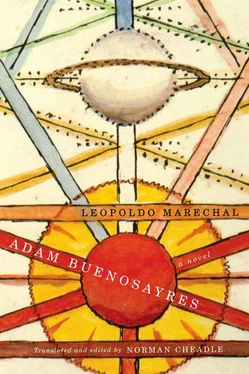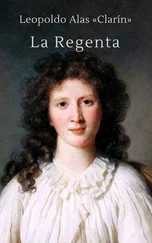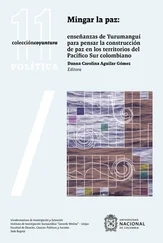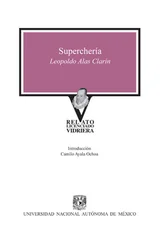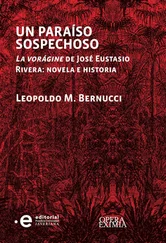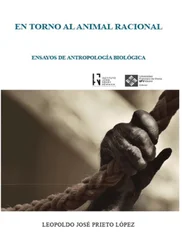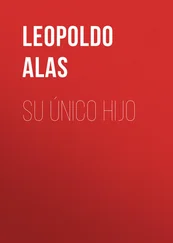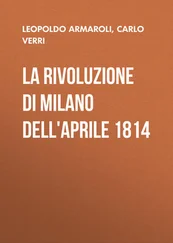— A personal gesture that does no one any harm, I retorted.
— Exactly. The trouble is, Don Luis wanted to give literary expression to his mystico-suburban fervour; he went so far as to invent a false Mythology in which the malevos of Buenos Aires acquire not only heroic proportions but even vaguely metaphysical dimensions.
I gave her a hard look:
— For that virtue alone, I told her, my distinguished comrade Luis Pereda deserves the laurels of Apollo.
— Your reasons, please? demanded the False Euterpe.
— Has it not been said that a heavy cloud has been hanging over our literature, a tendency to imitate foreign models? It’s been said, you can’t deny it! And when a man like Pereda goes out and vindicates the right of the criollo spirit to ascend to the universal plane of art, he gets mocked and ridiculed and subjected to infernal indignities. Well, Madame, I bow before our champion; and I’d reverently take off my hat to him, if I hadn’t lost it somewhere in this damned Helicoid.
— Thank you, my people! cried Pereda, visibly moved. When I get out of here, I’ll buy you a gin at the pink general store on the corner. 134
But the False Euterpe insisted:
— Even if we admit that our patient is a brilliant innovator. Does that circumstance give him the right to geld the words of our language and write soledá for “soledad” and virtú for “virtud,” or pesao for “pesado” and salao for “salado”? 135
— An idiomatic prank! I retorted. An artist’s capricious snip of the shears. He comes by his taste for gelding honestly, from his rancher forefathers.
— Fine, admitted the false Muse. But then there are his neologisms. This gentleman has had the cheek to coin terms like “tile-floorishness” and “cisternism” and “bannisterdom” that scream bloody murder.
— Have you ever read Horace? I asked.
— Horace? she said. I didn’t know he was a writer. An upstanding young man like him!
— Not that one! I griped. The Horace I’m talking about gives bards licence to introduce neologisms galore.
The False Euterpe was about to answer me, when a pseudogogue wearing a rather pompous purple tunic intervened:
— Gentlemen, he declaimed in a resentful tone, I think it unfair to distract these noble tourists with the literary romps of a writer (and he pointed at Pereda) who, they say, hasn’t got beyond the narrow confines of grammar. In all modesty, I believe there are geniuses worthier of human attention among those of us gathered here.
— That’s right! Bravo! a few voices piped up.
— A little composure! shouted the False Euterpe. This isn’t the Café Tortoni. 136
I turned to her:
— Who’s Purple Tunic? I aked. The fellow who’s just expressed himself with such exquisite taste?
— He of the pedestrian metaphors, answered the false Muse.
Levelling a powerfully ungulate index finger at him, she declared:
— This gentlemen has fallen into the reprehensible mania of stringing together comparison after comparison, with no restraint whatsoever, and against the fundamental dictates of prudence.
— So what? I shot back. Isn’t figurative language the best kind for poetry?
— It all depends on the figures, in my opinion. This gentleman, for example, has hung on the hanger of his heart the grey overcoat of melancholy; and with alarming frequency he has donned and doffed the nightshirt of hope. He has compared his love, succesively, to an automatic bar, a box of matches, and a pair of boots. Now he has muffled himself in the warm blanket of doubt, and no power in heaven could make him climb aboard the streetcar of mystery. 137
I looked at Purple Tunic with a fraternal gaze:
— Sir, said I, through metaphor we attempt to express the subtle relationship we find between two different things. But it won’t do to bring what is superior down to the level of the inferior; rather, through comparison, we must bring about the ascension of the inferior to the level of the superior. To compare the sky with a water-closet is to offend the sky and heap ridicule on the water-closet.
— So what are we supposed to do? grunted the fellow in purple. Compare the water-closet with the sky so as to make the water-closet rise up to heaven? And anyway, look who’s talking! A parrot of the new generation who has mortified us with the most absurd metaphors. Wasn’t it you who wrote that line about “love more joyous than a child’s funeral”?
Here I turned every colour of the rainbow:
— Look, I told him, it may be a risky comparison, but it has a hidden folkloric meaning.
— It’s nonsense! shrieked the Tunic. Moreover, did you not dare to say that “your sky is round and blue like the eggs of a partridge”? And since when do partridges lay blue eggs? Haven’t you told a woman that “in the climbing vines of her voice, a bird of grace broods over three little eggs”? 138Please understand, sir, that so many eggs are hard on the Muse’s liver!
— How’s that? growled the False Euterpe, giving me a dangerously curious look. This gentleman has written all that?
— And more, answered the Tunic. This young versifier who goes around censuring other people’s style has had the nerve to praise a lady by saying her smile was “as pleasant as the death of illustrious uncles.” 139
The False Euterpe stopped looking at me to fix two questioning eyes on Schultz:
— Shouldn’t we add him to my entourage? she asked him.
I felt a cold sweat break out on my forehead. And it got worse when I saw the astrologer silently looking me up and down as if taking my measurements for a tunic.
— A case of youthful measles! I uttered in fright. And who hasn’t gone through it? Believe it or not, by putting the most heterogeneous things in relation to one another, I wanted to emancipate them from their narrow ontological limits so they could take on other forms and other meanings.
— This gentleman is raving! exclaimed the False Euterpe, pointing at me. Bring him a peplum, the straightjacket model!
— It’s a fatal error! interjected somewhat bitterly a tunicked pipsqueak, two cardboard wings sprouting from his shoulders. Woe to him who profanes art with the idle game of forms!
Everyone looked at him, and my soul was filled with gratitude for the intervention of this new character who was attracting the curiosity of the assembled company.
— Woe to him who offends the hierarchies of art! proclaimed again the tunicked pipsqueak.
— You be quiet! the False Euterpe ordered him.
And turning to us, she spoke thus:
— This poetaster, who decorates his shoulders with fake wings, has a mania for putting his art at the service of a kind of cheesy mysticism that has angels and archangels flapping all over the place.
— And why not? adduced the pipsqueak. The angels are with us: woe to him who senses not their invisible presence!
— Candle-sucker! a fellow in a red tunic shouted at this point.
— Silence! growled the false Muse. I haven’t finished yet with the tunicked pipsqueak. It’s fair to say that his commerce with angelic creatures wouldn’t be so bad, if at the same time he didn’t go in for theological digressions and symbolisms that God himself doesn’t understand. Especially the symbolism of numbers. This bard has contracted a strange and baneful passion for the number seven: he sees and explains everything in sevens. 140
— It’s a sacred number! exclaimed the pipsqueak, swooning in ecstacy.
The fellow in the red tunic who had just spoken now stepped forward angily. I recognized in him a libertarian poet from Boedo Street. 141Pointing at the pipsqueak, he cried:
— Don’t pay any attention to him! He’s a sanctimonious Holy Joe working for the bourgeoisie!
Читать дальше
